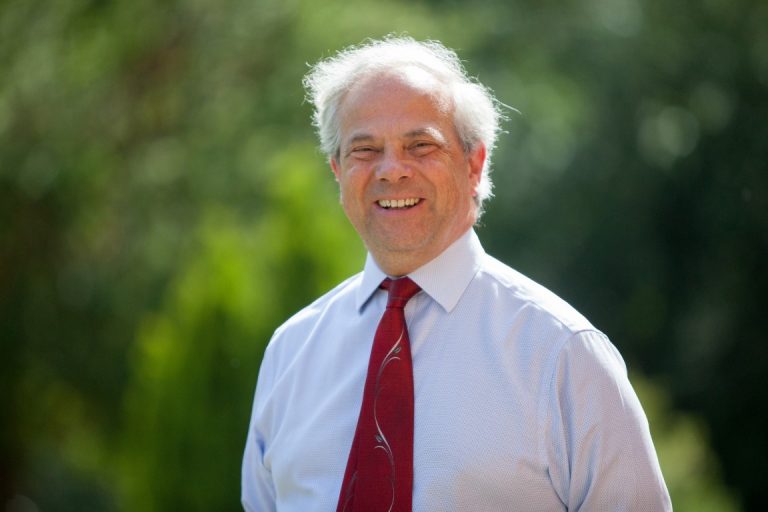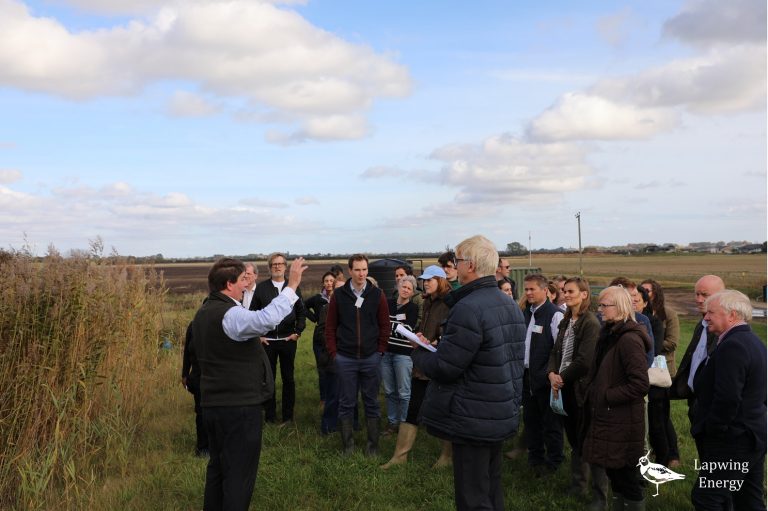Workplace Wellbeing Timebomb – 83% of professionals have experienced poor mental health at work
Farming industry feels the pain
- First, it is only based on APR claims and takes no account of the farm’s machinery, livestock, working capital or other business assets, including diversified business activities supporting the farm and the rural economy. That figure misses half the picture and so understates the effects of the change.
- Second, it is not an assessment of farms but of individual ownerships of agricultural land. The average value of £486,000 might generally be just 50 acres but nearer 20 in some areas. Some will be small intense farms or family members’ land used by the family farm, but more will be lifestyle units and stray fields let out for grazing round a house – both likely with wealthier non-farming owners. The data does not record farms when, on DEFRA data, the average cereals farm would need four owners to be out of tax on its farming activity.
Remagin powers construction of affordable retirement community
Leeds-based offsite construction manufacturer Remagin, part of Etex Group, is playing a pivotal role in the development of a new affordable retirement community in Oldham, Greater Manchester.
Using Remagin’s innovative Light Gauge Steel Frame (LGSF) Modern Methods of Construction (MMC) technology, Sydney Grange is being developed by McCarthy Stone and will deliver 51 affordable homes for older people in the region. All the panels for the Sydney Grange development were manufactured at Remagin’s factory in Leeds and assembled on-site, supporting local employment and helping to speed up the construction process and reduce costs. The project is the first of its kind to use Remagin’s MMC solutions in full alongside the Older Persons Shared Ownership (OPSO) scheme, with apartments available for just £95,000 based on 50% ownership*. Shahi Islam, Director of Affordable Housing at Homes England, recently visited the retirement community which will open later this year as well as Remagin’s factory in Leeds. He said “McCarthy Stone’s Failsworth development is an excellent example of high-quality and affordable housing for older people. We are pleased to support it through our older persons shared ownership scheme which forms a key part of Homes England’s efforts to provide suitable housing and build strong communities. “Expanding the use of MMC is also a priority for the programme so it’s great to see the success of the partnership with Remagin. We look forward to supporting this model and seeing it progress.” Remagin’s involvement highlights the importance of local manufacturing in the delivery of large-scale affordable housing projects. By producing LGSF panels locally, the company has been able to support the Yorkshire economy while ensuring high-quality construction at reduced costs. Patrick Balemans, Head of Division at Etex New Ways and Remagin, said: “This project demonstrates how Modern Methods of Construction can be used to meet the increasing demand for affordable, energy efficient and high-quality housing. By manufacturing the panels at our Leeds facility, we’ve not only reduced build times but also contributed to the local economy and created jobs in the regional supply chain. We look forward to continuing our work on similar projects that combine speed, value and cost-efficiency.” Sydney Grange is the first in a series of projects that McCarthy Stone and Remagin plan to deliver across the Midlands and the North, with a focus on addressing the growing need for affordable homes for older people. The use of MMC is expected to reduce construction timelines by up to 50%, while also offering sustainable, energy-efficient homes that lower ongoing costs for residents. John Tonkiss, CEO at McCarthy Stone, said: “We are delighted to showcase the first of what will be many more affordable retirement communities that we’ll build in partnership with Homes England and Remagin. It is a truly groundbreaking model that provides new retirement apartments at affordable prices and in parts of the country where development previously would not have been viable. We look forward to continuing this partnership in the months and years ahead.”Ground investigation starts for homes site development in Grimsby
Unnamed operator chosen for Doncaster Sheffield Airport
An as-yet-unnamed operator has been appointed to take over Doncaster Sheffield Airport which will lead to eventual reopening of the site — and the three South Yorkshire Chambers are applauding everybody involved in getting the landmark deal over the line.
Negotiations now entering into their very final stages but the decision is seen as a major step forward and a huge win for South Yorkshire, with the possibility of passenger flights resuming in spring 2026.
The South Yorkshire Mayoral Combined Authority will soon be considering a business case for the immediate release of £3 million (from an earmarked £138 million gainshare) to support the ongoing negotiations at this critical juncture.
Dan Fell, Chief Exec of Doncaster Chamber, said: “It goes without saying that this is incredibly heartening news, not only for Doncaster but for the wider region too. As we have long maintained, successful economies need successful airports in order to thrive and so the return of DSA naturally has massive implications for South Yorkshire.
“With that in mind, I’d like to take this opportunity to applaud everybody who has played a role, however small, in getting this deal over the line. In particular, our public sector partners at City of Doncaster Council and SYMCA deserve to be commended for taking such a bold and entrepreneurial approach to these negotiations; ultimately enabling us to get where we are today.”
Louisa Harrison-Walker, Chief Exec of Sheffield Chamber, added: “I am sure I can speak on behalf of our business community when I thank the various leaders and behind-the-scenes officers involved here for their tremendous hard work and dogged persistence. They have truly opened up new, exciting opportunities for the region.
“The news that South Yorkshire is, at long last, getting its airport back is certainly a very welcome development for Sheffield firms as well. After all, ours is an internationally significant city, with industry-leading companies and a pair of acclaimed universities that are respected the world over. These organisations are all set to benefit from the global connectivity that this revamped airport will provide; whether it’s in the form of supply chain opportunities; the creation of new jobs; or increased access to the best and brightest talent.”
Carrie Sudbury, Chief Exec of Barnsley & Rotherham Chamber, said: “At the time of its initial closure, DSA had huge untapped potential and we are eager to see how the region will take greater advantage of all these opportunities when the airport returns in its new and improved form.
“Indeed, an economic impact study found that it could represent up to £1.56bn in net benefits over the course of three decades. Not to mention, it will also create thousands of jobs right here in South Yorkshire. As Chambers, we naturally welcome anything that prospers our region, but the potential benefits that could be unlocked here cannot be understated.”
Grains storage at Immingham expands with £10m investment
Government business advice chatbot moves to new test stage
“This is an essential part of our ambition to use AI to improve public services in a safe and reliable way, making sure the UK government leads by example in driving innovation forward.”
Glass Futures Appoints Justin Kelly as New CEO
Justin is a Chartered Engineer with a BEng (Hons) in Computers, Management and Electronics. He began his career at Siemens where he held several roles over nearly three decades culminating in his appointment to the Siemens Executive Management Board in 2017.
Committed to driving innovation, Justin was the founding CEO of the Sustainable Materials and Manufacturing Centre in Greater Manchester to benefit both the economy and environment. In 2023 he became Non-Exec Chair of Sustainable Ventures North, an organisation dedicated to supporting sustainability-focused start-ups across the country.
Richard Katz, the first Glass Futures employee in January 2020, has been appointed President and will continue to work closely with the new Government to help them understand how Glass Futures’ research, development and innovation enables growth, particularly with reference to identifying what works and, more importantly, what doesn’t work for industrial decarbonisation in the fight against climate change.
Glass Futures was a concept developed some 10 years ago by Richard together with Dave Dalton, CEO of The British Glass Manufacturers’ Confederation, the representative body for the UK glass industry, as an independent not-for-profit organisation to enable the glass industry to have access to an industrial scale experimental pilot plant.
The facility has been designed and built by the industry to allow practical experimentation with alternative low carbon sustainable energy sources to replace high carbon natural gas to decarbonise glass manufacture toward a sustainable future.
Funding in the order of £75 million has been provided by National, Regional and Local Government together with the industry to build Glass Futures’ 165,000 sq.ft Global Centre of Excellence in St Helens on Merseyside, the home of Pilkington’s revolutionary Float Glass development.
Aston Fuller, General Manager at Glass Futures said “Having been the second employee at Glass Futures, I’m extremely proud to see the exponential growth of the organisation in such a short period of time. These important changes will support our growth and impact with our ever-growing diverse membership across the global glass supply chain sharing our collaborative ethos, to our own team who’ve developed and grown our vision”
“I look forward to continuing to support our members on this journey through an ever changing world of sustainability and resource efficiency technologies alongside Justin and Richard in the coming years”
This next phase of Glass Futures continues with new appointments to the Board of Directors, including Mike Houghton, Chief Commercial Officer of Process Industries Software at Siemens as Chair and José Miguel Ivorra, Vice President of Global Business Development at Guardian Industries in place of Dr Richard Hulme whose long-term secondment is drawing to a close.
They are welcomed by current Board members including newly established Deputy Chair, Adrian Curry, Executive Director and Chief Decarbonisation Officer at EET Fuels, Dr Ludovic Valette, Vice President of Technology and Engineering at O-I Glass, Inc. USA, Dave Dalton, CEO of The British Glass Manufacturers’ Confederation, Professor Anthony Hollander, Pro-Vice-Chancellor for Research at the University of Liverpool, and Sean Murphy, Managing Director of Encirc.
Mike Houghton said “On behalf of the Board we would like to thank Richard Katz for his valuable contributions over the last 10+ years as Chief Executive, turning a vision into reality. Also great thanks to Guardian Glass’ Dr Richard Hulme who was instrumental in ensuring Glass Futures’ technical strategy reflected our member’s needs.”












